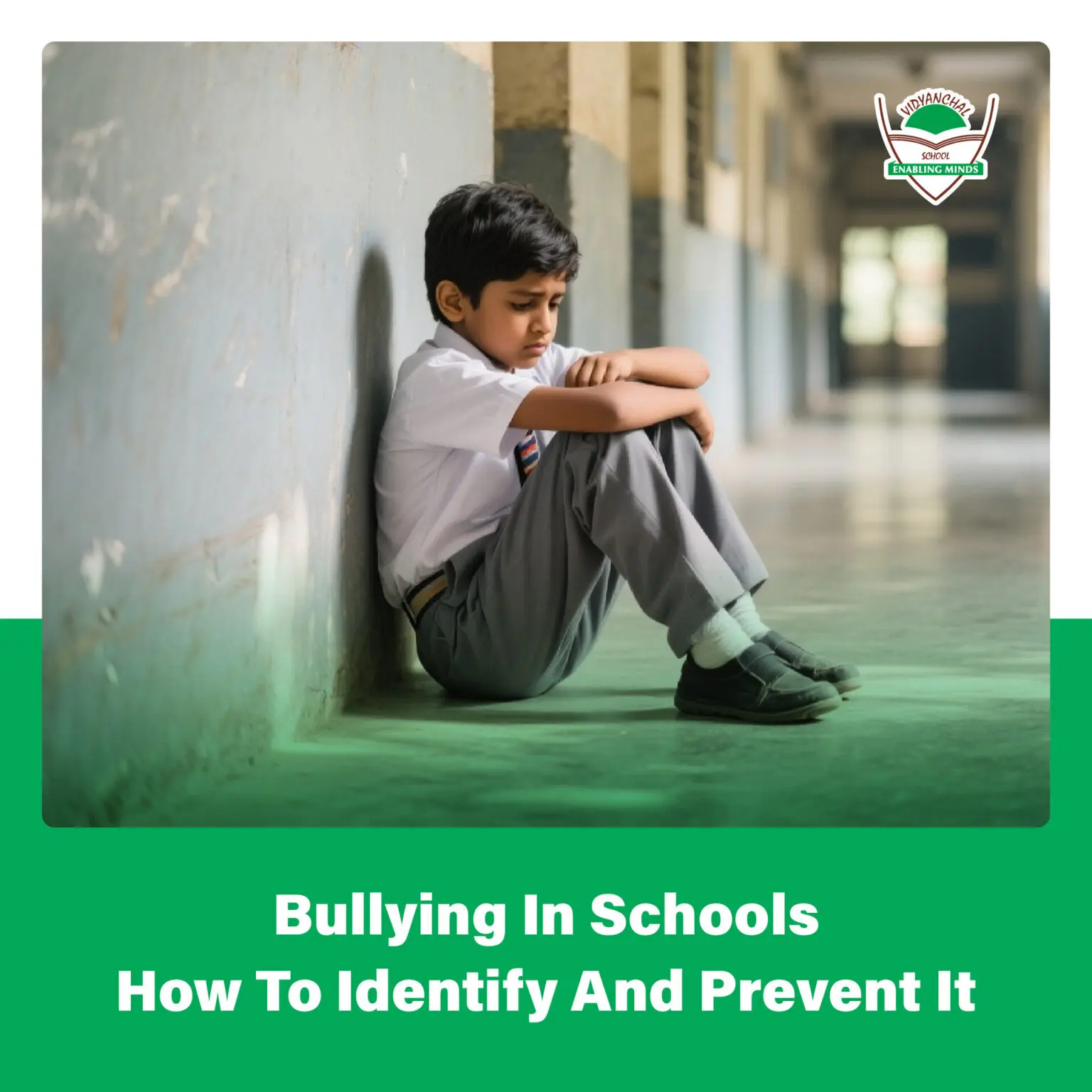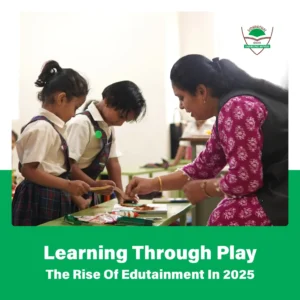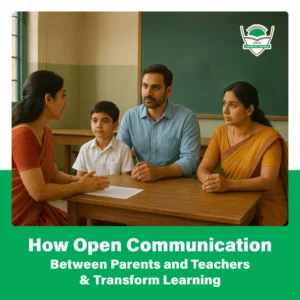While schools today focus on academic excellence and co-curricular achievement, one silent crisis often goes unnoticed—bullying. For many children, bullying can leave emotional scars that last longer than any exam result. In fact, the UNESCO Institute for Statistics reports that 1 in 3 students globally has been bullied at least once in the past month. In India, the situation is just as alarming—42% of students report experiencing some form of bullying in school, according to a study by the National Commission for Protection of Child Rights (NCPCR, 2023).
For parents and education experts, understanding how to identify and respond to bullying can play a pivotal role in creating emotionally safe learning environments.
What Is Bullying?
Bullying is more than the occasional fight or teasing. It is intentional, repetitive, and involves a power imbalance—physical, emotional, or social. Bullying may appear in different forms:
- Physical: Hitting, pushing, or breaking belongings
- Verbal: Name-calling, mocking, threats
- Social: Exclusion, gossip, public shaming
- Cyber: Harassment via social media, messaging apps, or online forums
Even silent exclusion—being ignored, not invited, or constantly left out—can be a form of social bullying that deeply affects a child’s self-worth.
Why Is Bullying Prevention So Important?
Bullying affects not just school days but also mental health, academic performance, and long-term confidence. According to a 2022 report by the World Health Organization, children who are frequently bullied are:
- 2.5 times more likely to suffer from anxiety and depression
- 1.7 times more likely to skip school or underperform academically
These effects can continue into adulthood, leading to poor workplace relationships, low self-esteem, and even substance abuse.
At Vidyanchal School, we believe that emotional well-being is foundational to learning. We view education as a partnership where schools and families co-create a safe, joyful space for growth.
How to Identify If Your Child Is Being Bullied
Children don’t always speak openly about their struggles. Studies show that more than 50% of bullied students never tell an adult. That’s why it’s vital to look for non-verbal clues:
- Sudden withdrawal or loss of interest in favorite activities
- Change in appetite or sleeping patterns
- Frequent physical complaints with no medical cause
- Avoidance of school or specific classes
- Drop in grades or concentration
- Unexplained bruises or damaged possessions
If your child shows one or more of these signs, start with gentle, open-ended conversations. The goal is to create a non-judgmental, emotionally safe space.
How to Know If Your Child Is Bullying Others
It’s equally important to recognize when your child might be the one engaging in bullying behavior. Studies suggest that 15–20% of children involved in bullying are perpetrators—often acting out due to emotional stress, insecurity, or peer pressure.
Look out for:
- Controlling or aggressive behavior with peers
- Lack of remorse after hurting someone
- Enjoyment from teasing or excluding others
- Frequent conflicts or defiance toward authority
- Blaming others without accepting fault
These are not signs of a “bad child,” but rather cries for emotional support. Addressing these early can help build emotional maturity and empathy.
Prevention: What Schools and Parents Can Do Together
1. Build Emotional Intelligence from Early Years
Children with high emotional intelligence (EQ) are less likely to engage in or become victims of bullying. Emotional learning helps them name their feelings, resolve conflict, and build healthy relationships.
At Vidyanchal, emotional education is integrated into everyday learning—from empathy exercises in lower grades to real-life storytelling that builds compassion.
2. Promote Open Dialogue at Home and School
Ask daily questions that go beyond “How was school?” Try:
- Who did you sit with during lunch?
- Was there a moment today that made you feel uncomfortable?
Schools can support this with regular classroom check-ins, peer discussion circles, and access to trained counsellors.
3. Model Kindness and Respect
Children often mirror what they see. Whether it’s handling frustration respectfully or apologizing when wrong, adults set the tone. Consistent examples from teachers and parents help build a culture of kindness.
4. Teach Bystander Responsibility
According to the National Crime Records Bureau, incidents of bullying reduce drastically in schools where students are empowered to speak up. Teaching children to stand up safely, report issues, or comfort peers is as important as teaching them not to bully.
At Vidyanchal, our curriculum actively promotes 21st-century skills like empathy, collaboration, and ethical leadership.
5. Strengthen School–Parent Collaboration
Parental involvement in school reduces bullying by up to 30%, according to UNESCO. Whether through PTMs, casual chats with teachers, or participation in school events, staying connected helps build a shared support system for students.
At Vidyanchal, we see this as a cornerstone of holistic development. Our school actively involves parents in conversations about peer influence, screen time, and digital safety—topics we’ve explored in our blogs on managing digital exposure.
What to Do If Your Child Is Being Bullied
Here’s a simple but effective 5-step approach:
- Listen without judgment – Let your child speak freely.
- Validate their emotions – Avoid phrases like “It’s not a big deal.”
- Document incidents – Maintain a record of events or messages.
- Talk to school staff – Involve teachers or the school counsellor early.
- Build confidence – Encourage creative hobbies, friendships, and physical activity.
What to Do If Your Child Is Bullying Others
Rather than reacting with anger or shame, try this approach:
- Have a calm discussion – Understand what triggered the behavior
- Set clear expectations – Let them know bullying isn’t tolerated
- Explore underlying issues – Is it peer pressure? Frustration?
- Seek support – Work with school staff or child psychologists
Remember: Bullying is a behavior—not an identity. With the right guidance, every child can learn to choose compassion over cruelty.
Schools Must Go Beyond Academics
Anti-bullying efforts aren’t about enforcing rules—they’re about nurturing trust, kindness, and courage. At Vidyanchal, these values are instilled not just through textbooks, but through:
- Morning assemblies on values
- Peer mentorship programs
- Emotionally inclusive classroom activities
Every interaction in school—from sharing lunch to resolving a playground dispute—is an opportunity to teach emotional intelligence.
When a child feels safe, seen, and supported, school becomes more than a classroom—it becomes a space of joy and growth.
If you’re concerned about bullying, want to partner in building a safe school environment, or just want to learn how we at Vidyanchal create emotionally empowered learners—we’re always here to talk.













